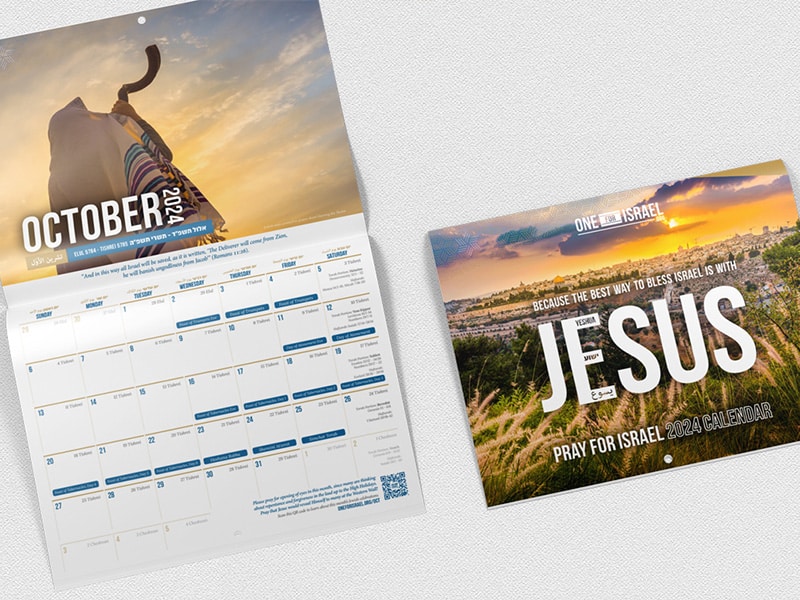“Water will flow from his buckets, and his seed will be by many waters, and his king shall be higher than Agag, and his kingdom shall be exalted. God brings him out of Egypt, He is for him like the horns of the wild ox. He will devour the nations who are his adversaries, and will crush their bones in pieces, and shatter them with his arrows. He couches, he lies down as a lion, and as a lion, who dares rouse him? Blessed is everyone who blesses you, and cursed is everyone who curses you” (Num 24:7-9).
In terms of Messianic prophecy, Numbers 24:7-9 is likely the least-known, yet most important Messianic prophecy in the entire Hebrew Bible! The reason it is not known is because many people assume Balaam is speaking about Israel and her exodus from Egypt in this passage. This in large part is because Numbers 24:8 is almost identical to Balaam’s words about Israel’s exodus in the previous discourse: “God brings THEM out of Egypt, He is for them like the horns of the wild ox” (Num 23:22). But there is a slight difference that make all the difference in the world. Numbers 23:22 refers to a plural direct object: God brings THEM out of Egypt. Numbers 24:8 refers to a singular direct object: God brings HIM out of Egypt. Why does Balaam use “THEM” in the second discourse and “HIM” in the third discourse?
But there is a slight difference that make all the difference in the world…
The reason for this difference becomes clear when we carefully compare Balaam’s second and third discourses. In Balaam’s second discourse, Balaam speaks about two grammatically singular subjects in verse 21: Israel (Num 23:21a) and a king (presumably Moses) in Israel’s midst (Num 23:21b): “He has not observed misfortune in Jacob; nor has He seen trouble in Israel; the LORD his God is with him, and the shout of a king is among him.” The two “hims” are potentially confusing. To make clear Balaam is speaking about Israel and her king collectively, Balaam must use a plural pronoun (“them”): God brings THEM (Israel and her king) out of Egypt (Num 23:22). It is obvious, therefore, that Balaam’s second discourse refers to God’s redemption of Israel from Egypt in the past.
In the third discourse (Num 24:7-9), however, Balaam is no longer speaking about the past, but about the future (that is why he calls the third discourse an “oracle” [24:3-4]; and a “vision” [24:4]). In Numbers 24:5 Balaam refers to Israel/Jacob, and in Numbers 24:7 he refers to Israel’s future king. To make sure we understand this time Balaam is speaking specifically about Israel’s king in Numbers 24:8, rather than about Israel collectively, he uses a singular direct object: “God brings HIM (Israel’s future Messianic King) out of Egypt” (v. 8).
Why is this prophecy such a big deal?
First, because Balaam’s Messianic prophecy demonstrates his familiarity with another Messianic prophesy, namely Jacob’s in Genesis 49 (compare Gen 49:9 with Num 24:9). Second, Balaam tells us that God’s promise to Abraham will ultimately be fulfilled through Israel’s Messiah: “Blessed is everyone who blesses you” (Num 24:9b; see Ps 72:17; Gal 3:16). Third, because Balaam’s prophecy is supernaturally specific: God will bring Israel’s Messiah out of Egypt. The specificity of Balaam’s prophecy, therefore, has only one possible address: Yeshua the Messiah!
“Now when they had gone, behold, an angel of the Lord appeared to Joseph in a dream and said, ‘Get up! Take the Child and His mother and flee to Egypt, and remain there until I tell you; for Herod is going to search for the Child to destroy Him.’ So Joseph got up and took the Child and His mother while it was still night, and left for Egypt. He remained there until the death of Herod. This was to fulfill what had been spoken by the Lord through the prophet: ‘OUT OF EGYPT I CALLED MY SON'” (Matt 2:13-15).













